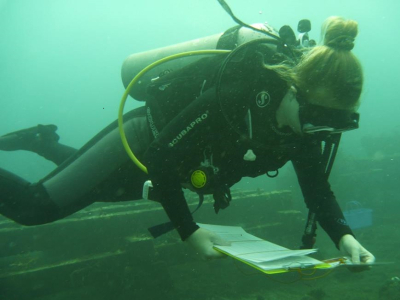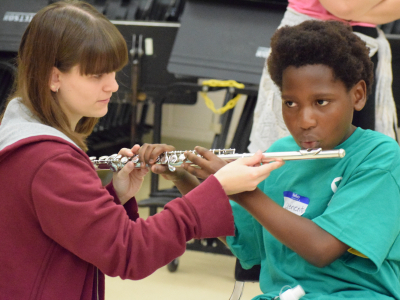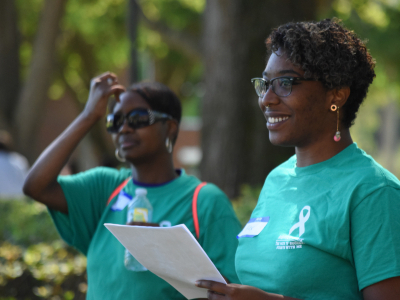


Minor in Civic and Social Responsibility
The Minor in Civic and Social Responsibility is designed for students who seek to understand and actively engage with issues of social equity on the local and national or global levels. This interdisciplinary program connects academic coursework with meaningful community involvement, equipping students with the knowledge and skills to contribute to social change in their careers and civic lives.
By integrating theory and practice, students will explore the ethical dimensions of civic responsibility, develop leadership skills, and analyze the role of institutions and communities in addressing societal challenges.
Note: This minor replaces the Certificate of Community Engagement. For students who entered Stetson before Fall 2025 and are completing the certificate instead of this minor, check out the certificate's requirements.
For more information on the Marchman Program, please contact [email protected].
Overview of Requirements
- One Foundations course (1 unit)
- One Social Justice course (1 unit)
- One Elective course from Foundations, Social Justice, or Community Engagement courses (1 unit)
- CVSR 110: Intro to Community Organizing (0.5 units)
- Community Engagement Component — students choose 1 of the following 2 options:
1) Students complete 1 Community Engagement course (1 unit) along with a 70-hour community internship (0.5 unit of CSVR 397), for a total of 5 units
or
2) Students complete 140 hours of community internship over two semesters (0.5 unit of CVSR 397 each semester), for a total of 4.5 units. - Capstone Essay (see below)
Community-Based Internship
Each student in the minor completes at least one 70-hour community-based internship. Students will work with an organization or agency that seeks to enhance well-being and equity in the community at any scale, from local to global. Before beginning their internship, students must complete one of the courses listed for the minor and get approval from the program director. Then, students will register for CVSR 397 to do the internship and will complete regular reflection activities as part of it.
If students are interested in continuing with the internship in future semesters, they may count additional units of internship in place of the Community Engagement course or the Elective for the minor.
A community-based academic internship completed for a student's major can also count towards this minor, with approval from the program's director.
Approved Organizations: Students will perform their internship with organizations recognized by the Center for Community Engagement, which can assist them in finding organizations that fit their interests.
Capstone Essay
Critical Reflection: During their final semester, students will write a reflective essay on their community engagement experience, drawing on both academic learning and hands-on practice to demonstrate personal and professional growth.
Review Process: Students will submit their essay to the Marchman Chair, which will be reviewed by faculty/staff of the program. Students will have the opportunity to revise and resubmit their essays if they do not meet the standards.
Learn more about the Capstone Essay requirements.
Examples of Approved Courses
Visit the Catalog for a complete list of courses. Relevant courses not listed in the Catalog may also be counted toward the minor with the program director's approval.
Foundations Courses:
PUBH 140V: Introduction to Public Health
SOCI 101S: Understanding Society
GEND 100V: Studies in Gender, Race, Class, and Sexuality in the US
Social Justice Courses:
EDUC 245H: Social Foundations of Education
PUBH 305V: Food Insecurity Challenges and Solutions
RELS 277B: Between Malcolm and Martin
Note: Any course that has the General Education designation of "J" can also count as a Social Justice course for this minor.
Community Engagement Courses:
EDUC 275V: Human Exceptionalities
ENTP 353V: Social Entrepreneurship
SPAN 313L: Spanish in the Communities
For more information on the minor, please contact [email protected].